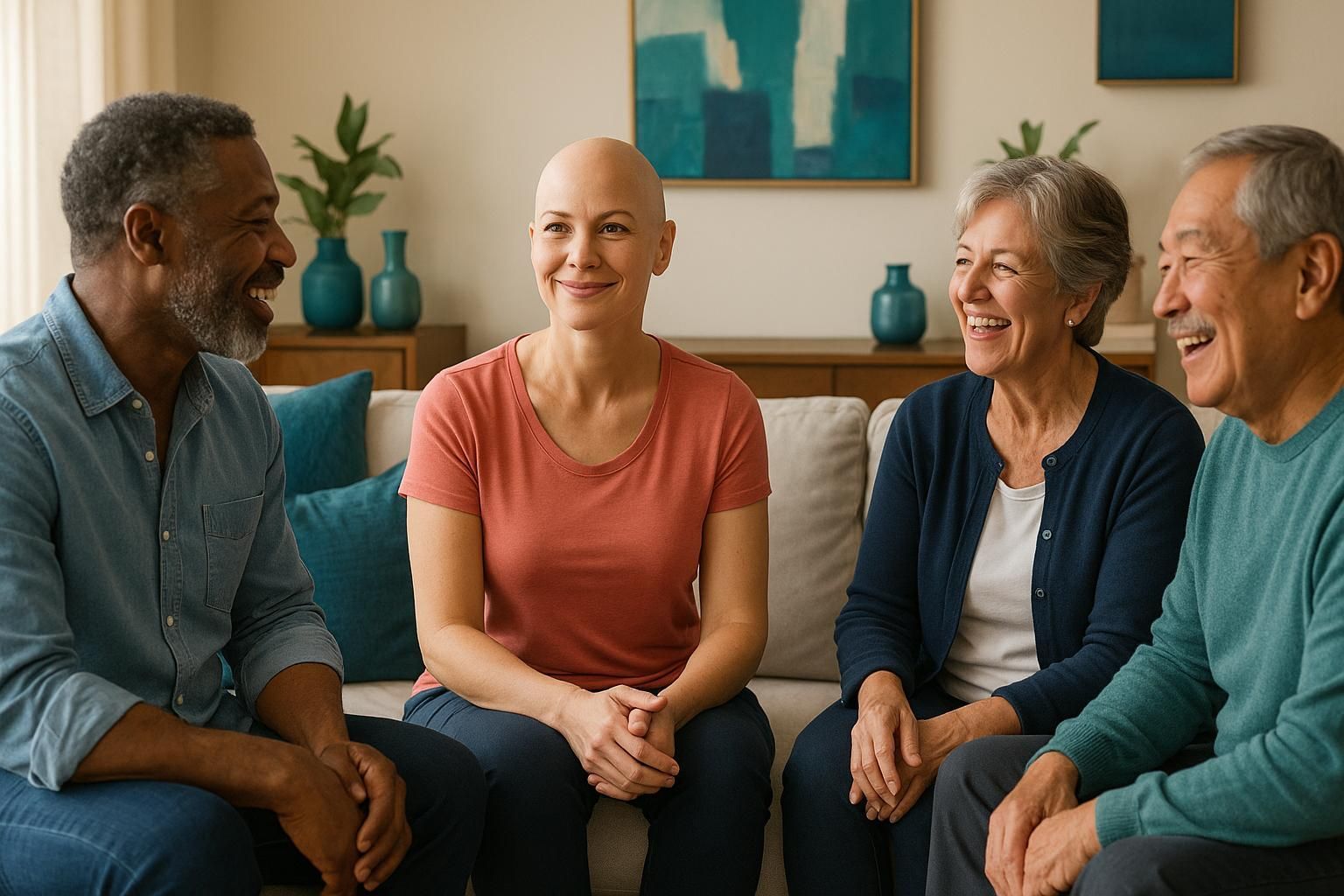What Is Diabetes Fecal Incontinence Treatment? The Answer Might Surprise You
By Dr. Ritha Belizaire
Quick Insights:
Diabetes fecal incontinence treatment means restoring bowel control for people with diabetes who experience accidental bowel leakage, often due to nerve damage. Immediate attention matters—effective treatments prevent complications and greatly improve dignity and daily life
Mayo Clinic treatment overview.
Key Takeaways:
- Diabetes can damage nerves controlling the bowels, making accidental leakage common.
- Pelvic floor training is a proven, non-surgical way to regain control.
- Advanced options, like sacral nerve stimulation, provide long-term relief without major surgery.
- Early treatment reduces complications and supports social confidence for people managing both conditions.
Why It Matters:
Living with diabetes and fecal incontinence can feel isolating, robbing you of social joys and independence. Timely diabetes fecal incontinence treatment lets you stay active, worry-free, and fully engage with loved ones—restoring dignity and empowering life on your terms. You deserve comfort and confidence, not embarrassment.
Introduction
As a board-certified colorectal surgeon, I've helped countless Houston patients regain control and peace of mind when facing diabetes fecal incontinence.
Diabetes fecal incontinence treatment is a personalized plan to stop sudden bowel accidents linked to diabetes, aiming to restore your dignity and protect your overall health. This condition often arises when diabetes damages the nerves that help control bowel movements—so managing both issues can feel overwhelming and isolating. But you're not alone, and solutions absolutely exist.
My care philosophy blends surgical expertise with empathy and respect for your privacy. Research confirms that modern, evidence-based treatments for fecal incontinence offer real results—often without the need for major surgery.
Many people hesitate to ask for help, but seeking early support opens the door to comfort, social confidence, and even same-day relief right here in Houston.
What Is Diabetes-Related Fecal Incontinence?
Diabetes-related fecal incontinence (loss of bowel control) occurs when diabetes affects the nerves or muscles that support bowel retention, leading to accidental leakage. This condition is not merely a minor annoyance but significantly impacts daily life, social activities, and self-esteem. In my surgical practice, I often see patients who've spent years silently coping with bowel issues, not realizing how treatable their condition actually is. You're not alone, and it's important to understand that this is a medical issue, not a personal failing.
Symptoms to Watch For
Patients may experience:
- Sudden, uncontrollable urges to have a bowel movement
- Leakage of stool unexpectedly
- Difficulty reaching the bathroom in time
- Soiling of underwear, particularly during activities or after meals
These symptoms vary in severity, sometimes coming and going unpredictably. Many people initially choose to "tough it out" before reaching out for help. However, from my perspective as a board-certified colorectal surgeon, accurate diagnosis is critical—many patients are told they have hemorrhoids when it's actually rectal prolapse or even early-stage colorectal cancer.
How Common Is It?
Fecal incontinence is quite common, particularly among people with diabetes. Studies reflect that up to one in three people with certain chronic diseases experience some form of bowel leakage. The risk increases with aging and prolonged duration of diabetes, with recent reviews estimating a prevalence as high as 34.8% in certain populations. If you're managing this condition, you share the journey with many others, and effective solutions are available with the right care.
When to Seek Medical Attention
If frequent accidents, pain, or blood in your stool are troubling you, or if these issues disrupt your life, consulting a physician is paramount. Don't wait—early intervention typically leads to better outcomes.
Why Does Diabetes Cause Bowel Leakage?
Diabetes can subtly erode bowel control over time. High blood sugar may damage the nerves tasked with signaling fullness and controlling anal muscles, a condition known as diabetic neuropathy. This nerve damage is a major factor in higher incidences of bowel leakage among diabetics. According to clinical studies, the link between diabetes and fecal incontinence is well-documented, with nerve dysfunction identified as a primary contributor.
Nerve Damage and Bowel Function
When the sensory and motor nerves controlling the anal sphincter are compromised, bowel accidents become more likely, especially when compounded by diabetes-related gastrointestinal disturbances like constipation or diarrhea. Having treated hundreds of patients with fecal incontinence, I know that restoring bowel control goes beyond physical function—it's about giving patients their freedom and dignity back.
Double Stigma: Living with Both
Discussing bowel incontinence is challenging in itself; add diabetes, and the stigma intensifies. Yet, these conditions often interlink, and they are not a testament to your hygiene or character. Seeking help is not a weakness but a proactive step towards regaining control and comfort.
How Is Fecal Incontinence Diagnosed in Houston?
Obtaining a proper diagnosis is the cornerstone of effective treatment. During consultations in my office, I initiate a thorough discussion about your symptoms, medical history, and the impact diabetes has on your daily life. The process is focused solely on uncovering solutions without judgment.
What to Expect at Your Appointment
During your visit, you can expect:
- Questions about your bowel habits, dietary routines, and medications
- A gentle physical examination, conducted with the utmost respect for your privacy
- Possible simple tests, such as anal manometry (assessing muscle strength) or an endoanal ultrasound (visualizing muscle structures)
These evaluations are critical for pinpointing the cause of your symptoms. Clinical guidelines emphasize the necessity of specialist assessment for those with diabetes experiencing new bowel control issues.
The Value of a Colorectal Specialist
Specialist care leverages advanced training and experience to identify nuances and offer targeted solutions, which may enhance diagnostic accuracy in certain conditions. I've observed better, faster outcomes for patients under specialist care, with recent studies affirming that expert-led management enhances both safety and effectiveness.
Effective Non-Surgical Treatments
Most patients are relieved to learn that surgery isn't a first resort. Many achieve significant relief through non-invasive measures tailored to their situations. My commitment is to explore these paths before considering surgery.
Pelvic Floor Training
Pelvic floor exercises are simple, effective routines to enhance the muscles involved in bowel retention. These exercises are taught in-office or with the help of pelvic floor therapists. Studies robustly support the effectiveness of these exercises for treating fecal incontinence, particularly with early adherence. Patients may experience improvements within weeks of consistent specialist care, depending on the specific condition and individual factors.
Diet and Medication Adjustments
Sometimes, refining your diet or medication regimen can lead to remarkable improvements:
- Adding more fiber to solidify stools
- Adjusting diabetes medications to curtail diarrhea
- Avoiding foods that may precipitate urgency, like caffeine or spicy dishes
These personalized changes often diminish the frequency of accidents and foster self-assuredness.
Advanced & Minimally Invasive Solutions
Occasionally, non-surgical interventions fall short. In these cases, be assured that advanced treatments are readily available and accessible in my Houston practice—no hospitalization required.
Sacral Nerve Stimulator Trials
Sacral nerve stimulation has transformed the lives of many by "rebooting" the nerves associated with bowel control. The procedure is minimally invasive and offers a trial period before permanent implantation. Research substantiates the durable relief achievable with this technology. Patients often regain significant independence and dignity through this option, particularly those who have struggled extensively. If you're interested, consider learning more about this advanced treatment for fecal incontinence.
In-Office Procedures Under Nitrous Oxide
For select cases, I provide in-office interventions like injectable bulking agents using nitrous oxide for comfort. These are quick, low-risk sessions with same-day discharge. Emerging clinical studies indicate promising avenues for these minimally invasive procedures.
My objective is always to align treatment with your distinct requirements with minimal interruption to your life.
Why Choose a Board-Certified Colorectal Surgeon in Houston?
Selecting a physician with specialized expertise may influence your care journey.
My dual board-certification and recognition as a Houstonia Top Doctor reflect a high level of proficiency and commitment to patient care.
I am committed to overseeing every phase of your treatment, from diagnosis through advanced therapeutic protocols, ensuring technical proficiency and respect for your privacy. Engaging with a skilled specialist is proven to improve patient results and reduce the risk of complications.
Explore more about our specialized colorectal care.
Real Patient Experiences in Houston
In my experience patients may enter feeling anxious and embarrassed but often leave with renewed optimism and self-confidence. My role extends beyond medical procedures—what many patients find transformative is the liberation of knowing they're not isolated in their challenges.
Contemporary literature emphasizes that patient-centered care greatly contributes to safety and satisfaction outcomes. I strive to integrate this approach in all interactions, acknowledging each small but significant victory with my patients.
If you're prepared to reclaim your comfort and dignity, know that I'm here to support your journey to a better quality of life.
What Our Patients Say on Google
Patient experiences are at the heart of everything I do as a physician. When someone takes the time to share their journey, it reminds me why compassionate, expert care matters so much—especially for sensitive issues like diabetes fecal incontinence.
I recently received feedback that captures what we aim to provide in our Houston practice. One reviewer shared:
"Dr Belizaire is awesome. I recommend her 100% because of her excellent bedside manner, operative skills, and experience. She is also just a top notch human being. Thank you for taking care of me, Dr Belizaire!!!"
— Sarah
Read more Google reviews here
Hearing this kind of appreciation reinforces my commitment to blending technical skill with genuine kindness. Every patient deserves to feel respected, heard, and cared for—no matter how personal the concern.
If you're struggling with diabetes fecal incontinence, know that you're not alone, and that compassionate, expert help is available right here in Houston. Schedulea same-day consultation to begin your path to recovery.
Diabetes Fecal Incontinence Treatment in Houston
Living in Houston brings its own unique blend of culture, climate, and community health needs. For many Houstonians managing diabetes, the added challenge of fecal incontinence can feel overwhelming—but you don't have to face it alone.
Our city's diverse population means I see a wide range of cases, from newly diagnosed diabetes to long-standing nerve complications.
Houston's warm climate and active lifestyle can sometimes make bowel control issues even more disruptive, especially when social events and family gatherings are a big part of daily life.
At Houston Community Surgical, I offer advanced diabetes fecal incontinence treatment tailored to the needs of our local community. Whether you need discreet, non-surgical options or the latest minimally invasive procedures, you'll find expert care and fast access right here in Houston.
If you're ready to take the next step, call 832-979-5670 for a same-day or next-day appointment. Your comfort and confidence are just around the corner—let's get you back to living life on your terms.
Conclusion
Diabetes fecal incontinence treatment is about more than just stopping accidents—it's about restoring your confidence, dignity, and daily comfort. In summary, early intervention with proven therapies like pelvic floor training and advanced options such as sacral neuromodulation can dramatically improve your quality of life. My expertise as a board-certified general and colorectal surgeon means I offer compassionate, minimally invasive solutions—including office-based procedures under nitrous oxide for those who feel anxious about treatment.
If you're tired of missing out on life's moments because of bowel control issues, don't wait. Call me at 832-979-5670 for a same-day or next-day appointment in Houston. Not local? I also provide virtual second opinions at www.2ndscope.com—so expert help is always within reach. Let's work together to help you regain comfort, confidence, and control.
This article is for educational purposes only and should not be used as a substitute for professional medical advice, diagnosis, or treatment. Always seek the advice of your physician or other qualified healthcare provider with any questions you may have regarding a medical condition or treatment options. Never disregard professional medical advice or delay in seeking it because of something you have read in this article.
For continued updates on colorectal health, subscribe to my colorectal health newsletter.
Frequently Asked Questions
What is the most effective diabetes fecal incontinence treatment?
The most effective treatment depends on your unique situation, but pelvic floor muscle training is often the first step and has strong evidence for success. For those needing more, advanced therapies like sacral nerve stimulation can provide lasting relief. I tailor every plan to your needs, focusing on both medical results and restoring your confidence.
Where can I find diabetes fecal incontinence treatment in Houston?
You can find specialized diabetes fecal incontinence treatment at my Houston office, where I offer same-day and next-day appointments. My practice provides discreet, compassionate care with both non-surgical and advanced options. If you're outside Houston, I also offer virtual second opinions to ensure you get expert guidance wherever you are.
How do you help patients feel comfortable during sensitive exams or procedures?
I understand that discussing and treating bowel issues can feel embarrassing. That's why I prioritize privacy, clear explanations, and a gentle approach. For anxious patients, I offer in-office procedures under nitrous oxide, making treatments more comfortable and stress-free. My goal is always to help you feel respected, safe, and at ease.
SHARE ARTICLE:
SEARCH POST:
RECENT POSTS:






